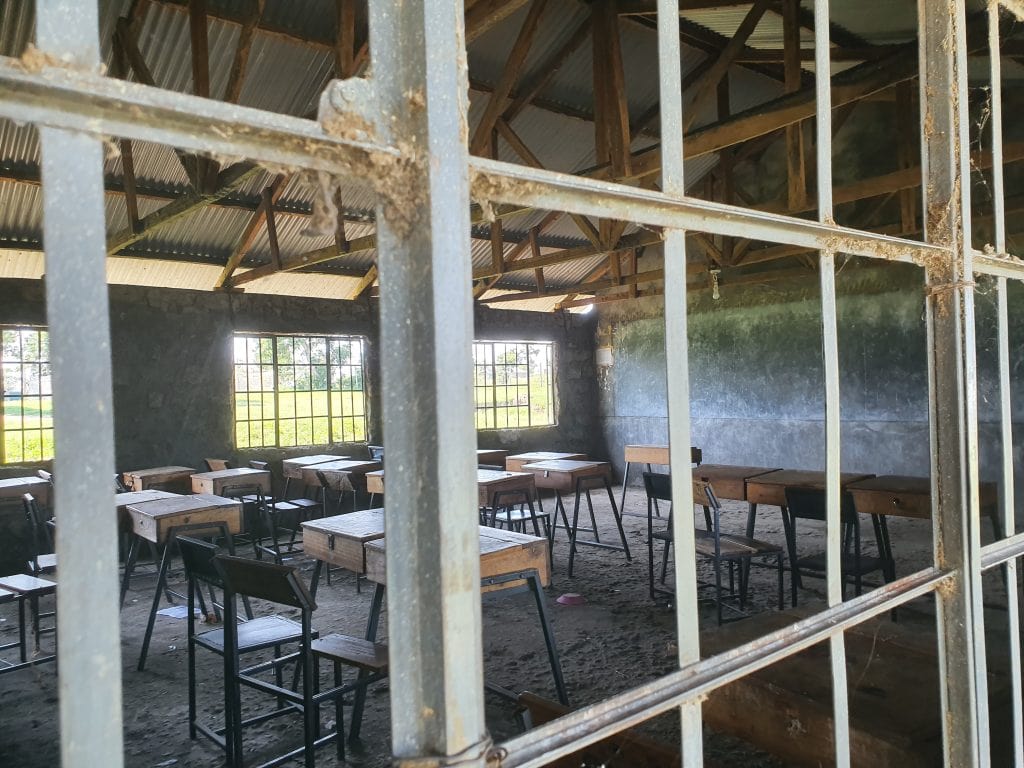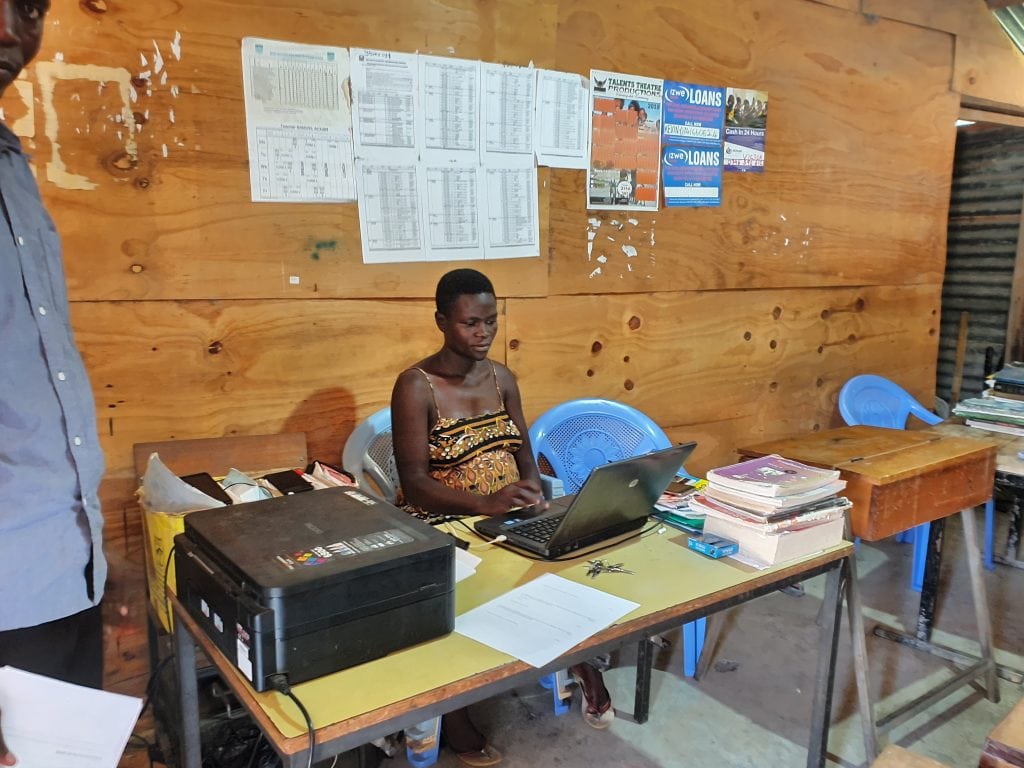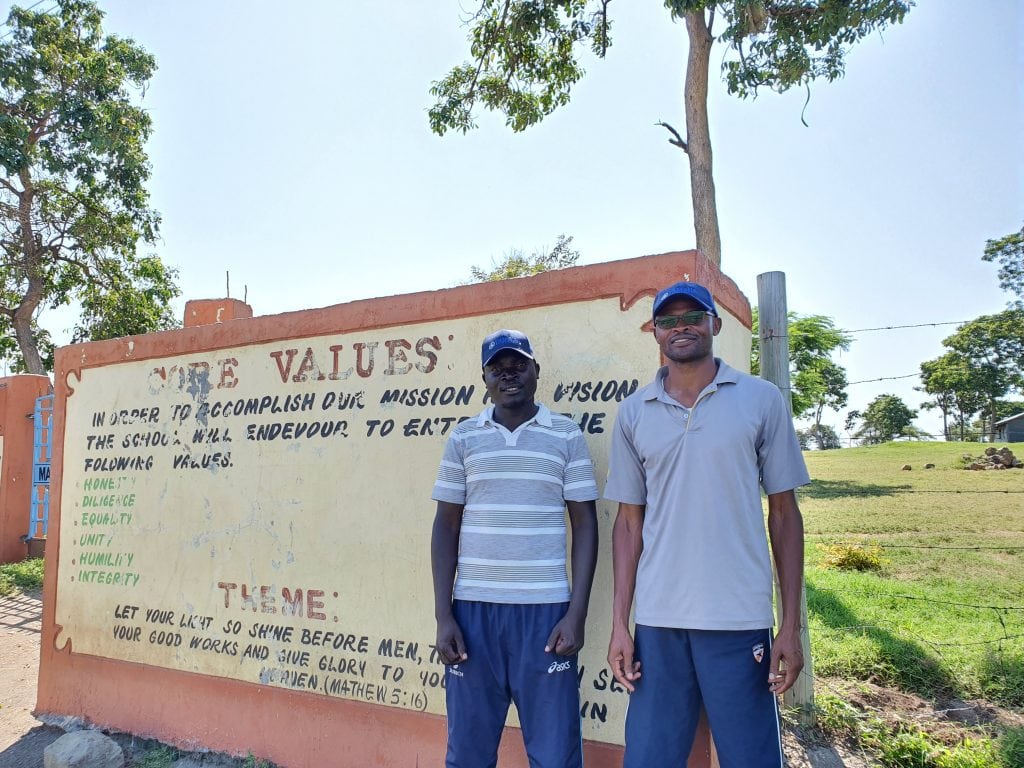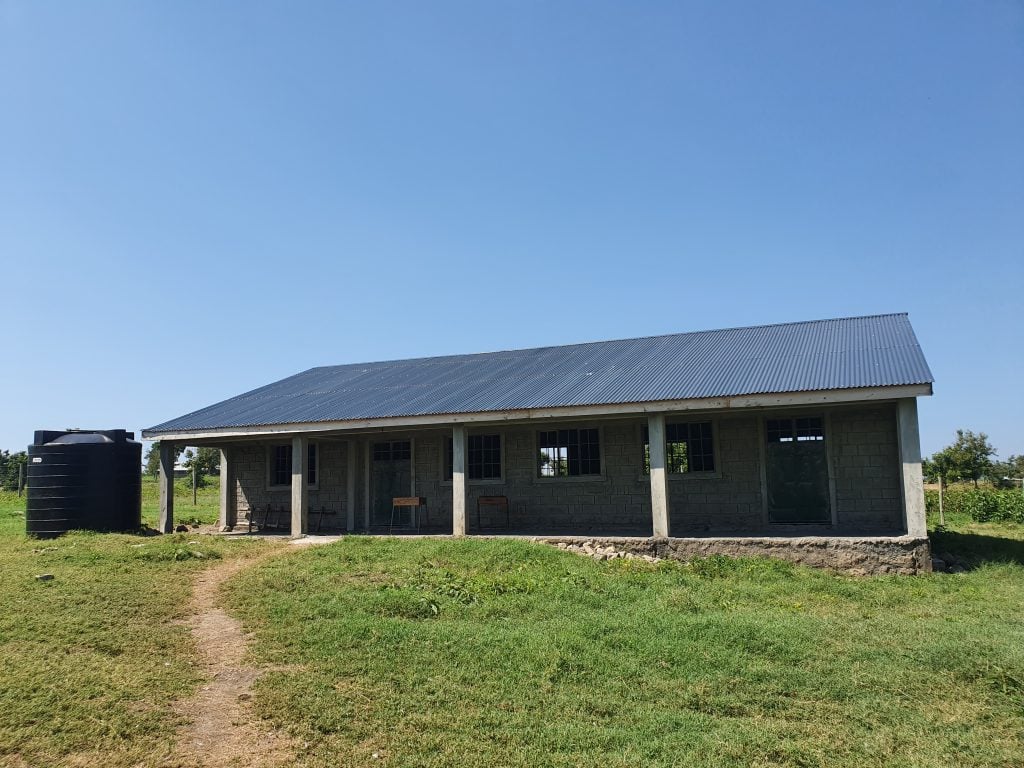Bringing solar power to Markmatunga Secondary School
Access to education is a basic human right that every child should be supported with. But living on an island in Lake Victoria, approximately 2km from the mainland, can make access to education a challenge. Luckily for children growing up on Kiwa Island in Lake Victoria (where Renewable World work), there is a school that supports children up to the age of 17.

Before Renewable World started working with the community in Kiwa Island, the school could only access electricity from one small solar panel installed on the roof. This meant that only one or two classrooms had electric lighting, and many others were left in the dark.
Without access to electricity, the school dorms were dark at night, and so the children would have to use kerosene lamps in order to study or read after dark. This had a negative impact on their health, as the smoke generated by kerosene lamps can cause problems with the eyes and respiratory systems.

Without electricity, the teachers had no internet or power for their computer. They struggled to prepare exams and print exam papers, and would have to travel to the nearest town on the mainland to complete these tasks. This meant that they wasted many hours of their valuable time travelling on boats and buses, instead of preparing lessons.
In 2018, the school on Kiwa Island was connected to the Renewable World solar minigrid, as one of 105 electrical connections. This changed the lives of the teachers and children on the island. Today, over 100 children can access light at the school from early morning, and for those who are boarders, they can access safe, clean electricity at night. The teachers can now hold classes in the evening to support children around exam times, as well as putting on extra classes for children who are struggling.

Before being connected to the minigrid, if a child’s family did not have enough money to buy school books, it often meant they would miss out on education. But now, teachers can share information on PowerPoint or print pages for some of the more vulnerable children in the communities.
As a result of the access to reliable and consistent power that the community minigrid provides, the Deputy Head of the school, Fred, is now able to undertake an online BA in Business Administration from the University of Nairobi. His studies will help him to improve classes, business administration, general finances and operations of the school.

Fred can see a huge improvement in the grades of the children who are either accessing power in their homes, or using the school’s resources to do their homework in the evening. He is incredibly grateful for the opportunities that the children of Kiwa Island now have thanks to access to electricity.
For children living in poverty in remote rural locations, the benefits of electricity are far-reaching. Thank you to everyone whose support has made this possible.
